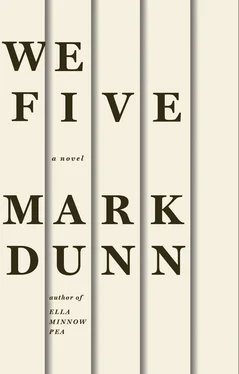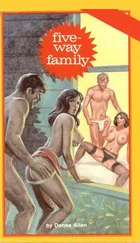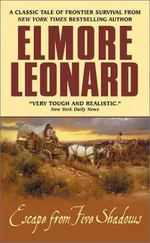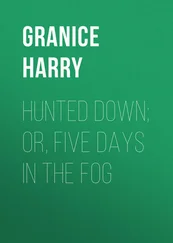“‘Put out.’ There it is, Herbert; the phrase is acceptable. Now, move along.” Lucile seemed at that moment as eager to hear what her brother had to say as was Maggie, and for very good reason: Herbert Mobry had kept Lucile purposefully uninformed about the matter due to a tendency on her part to speak broadly of things out of turn and without her brother’s leave.
“Yes, yes,” said Mobry. “The family’s name was Caster. Well, it still is, as a matter of fact. Not a family of any great means, but Caster has always been a man of aspiration and promise. An apprentice cheesemonger here in Tulleford, he was set adrift when the cheeseman under whom he worked decided upon retirement to hand the shop over to his daughter.”
Lucile Mobry shook her head and narrowed her eyes depreciatingly. “To think! A woman selling cheese! Carrying that offensive smell of Stilton and Double Gloucester upon her person like a lunatic’s perfume. Maggie, dearest, do take the almond cake. Your hand seems to want it, the way it’s suspended above the serving plate.”
Maggie obligingly took the little almond cake and placed it on her own plate next to the little squares of half-nibbled pound cake and cocoa-nut cake.
“My sister,” said Mobry, in an apologetic tone, “carries her distaste for fragrant cheeses into every possible conversation. As it turned out, the cheesemonger’s daughter died only two years after taking over her father’s shop — which is why she isn’t there still.”
“She had an abscess of the stomach,” struck in Lucile, “no doubt from consuming mildewed food, which is exactly what I believe strongly fragrant cheeses to be.”
“Sister, dear — pray may I proceed? Maggie is waiting to hear what I have learnt.”
“I will remain silent,” replied Lucile, pouting a little from the upbraid. “Please, my dear, take a sweet seedcake and gooseberry tart.”
Herbert Mobry soldiered on. “The husband — your brother’s new father — took employment here in town wherever he could find it, but then was required by unrelenting near impecuniousness to remove himself and his wife and adopted son to Manchester, where prospects were far better. In fact, he wasn’t there for very long at all before he secured a most promising apprenticeship with a successful Mancunian cheesemonger, and eventually, as I understand it, became a top-sawyer cheeseman himself.”
“And whatever became of the son?” asked Maggie. “I should so like some day to meet my brother.”
“I have no doubt you will, dear girl,” said Mobry. “Caster was very prompt in responding to my letter of enquiry, once I was able to learn of his precise whereabouts. He did not give me the name of his grown son, nor where he may be at present, but I warrant it is only a matter of my asking. I have business in Manchester next week, and I will make a point of paying a visit to Mr. and Mrs. Caster to learn these very things.”
“Thank you ever so much, Mr. Mobry. Up until the point of my discovering the existence of my brother, Jane was the only one of us to have a brother, although she’s hardly taken pride in the family affiliation. The thought that I too should have a brother, and that he should have been raised far removed from the venomous influence of my morally bankrupt father, is a most propitious development. I can scarcely believe it.”
Miss Mobry took Maggie’s hand and held it firmly. “Do not raise your hopes too high, my darling girl, for there are few brothers who are as exemplary in temperament and disposition as is my brother,” and then with a mischievous wink in that very gentleman’s direction, she codicilled, “except when he should be domineering and officious. But thankfully, such misbehaviour manifests itself infrequently. Please, have another—”
“I cannot endure another bite,” interrupted Maggie, placing her hand upon her stomach in demonstration of the pain of overindulgence that was more than likely to strike her if she didn’t suspend her bolting of everything Ruth’s aunt was putting before her. Maggie uprose from her chair. “You’ve both been most kind, and I’m quite eager to find out everything there is to know about my brother. Perhaps, if the Casters are willing, I’ll go thither myself.”
“I would not advise it,” Mobry cautioned. “Allow me first to lay the proper groundwork. It’s a delicate matter to reunite brother and sister when the brother, perhaps just like you, never knew there was a sibling in the picture.”
Maggie nodded. She departed after accepting compliments on behalf of her mother (in spite of the historical fact of the woman having given away to total strangers the fruit of her maternal loins) and after a promise was made by Mobry to report to Maggie every little tiddle and jot of what he gleaned from his impending trip to Manchester.
An hour later, having betaken herself to the town common where the fresh air helped her to think more clearly, Maggie came to rue her accommodating subscription to Mobry’s proposal that his visit to Manchester should precede hers. “After all, he’s my brother!” she proclaimed to the grass and to the shrubberies, “and I have every right to find things out for myself without need of an intermediary. Moreover, if I am to betake myself with all dispatch to that city not so very distant, the trip will prevent me from exchanging harsh words with my mother over why she would ever do such a fell and cruel thing as to give up my brother, and why, once she’d done it, she’d never found need to tell me about it.”
Whereupon, Maggie rushed home and filled her little hand-portmanteau with a few overnight necessaries, and drew out a sovereign and some silver from the jewellery drawer in her bedroom bureau, and, not wishing to wait for her mother’s return from her after noon visit with Mrs. Forrest, lest she miss the last train to Manchester, Maggie dashed off a note to Mrs. Barton, which said she was going away for the night. Maggie could not keep herself from adding, “to ascertain facts pertaining to my brother, which you should have named years ago, you blatant banisher of boy babies!” But then, thinking the last phrase superfluously hateful and not entirely accurate (there having been only one boy baby at issue, and the blatancy of its banishing having yet to be confirmed), she struck it through.
At the same time, Carrie could be found at the infirmary, standing next to the bed of her own mother and assisting the doctor and nurse in making the patient as comfortable as possible, for with burns as severe as those sustained by Mrs. Hale, not much more could be done other than the application of ointments and salves and the imposing of the salutary delirium of laudanum to put the sufferer into a state of anesthetic insensibility.
And where was Molly at this same time? Young Molly, having been released by her friend Carrie with strong words to the effect that she must go home and rest, was now in that very place and doing that very thing.
As it so happened, several other characters in our story found themselves, by either coincidence or design, in a different place still: the Fatted Pig Public House.
Here sate Jane Higgins and the man who sought that very after noon to win her favour, and decisively so: the outwardly charming and prepossessing Mr. Tom Catts, who was funny, and demonstrably endearing, and eager to see their two bumpers of old Madeira refilled until Jane’s head was a-swim in a swirling pool of compliments and blandishments the likes of which she’d never heard in all her three-and-twenty years upon this earth. Close by and watching the two with the studied intensity of a drowsy infant was Jane’s brother, a warm pint of porter clapped between two moist palms. As the room had become mist and haze for the increasingly alcohol-fuddled Jane, it was all that, as well, for Lyle Higgins, although, having grown used to living with his senses dulled and degraded, he had a stronger impression than did his sister of what was up and what was down, and what was up was this and no mistake: his sister Jane was become recipient of the most concerted form of love-making by a man who, unbeknownst to Jane, oozed dishonour and ill purpose from every pore.
Читать дальше












